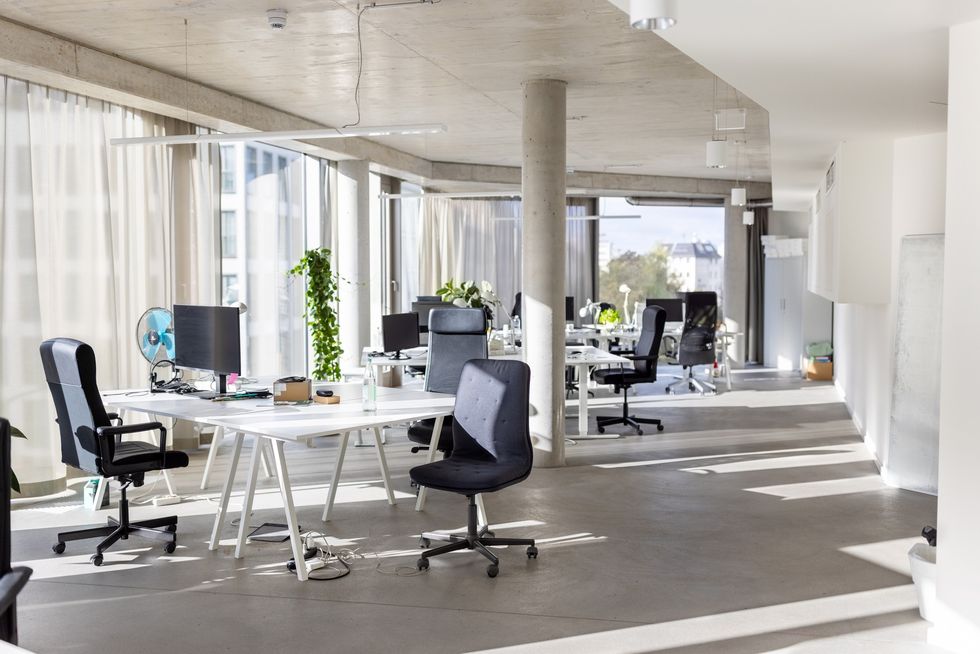Gen Z flock to traditional office jobs because they are lonely

Among Gen Z influencers, 45 per cent attribute loneliness to solitary working conditions
Don't Miss
Most Read
Trending on GB News
Gen Z have opted for traditional office jobs over remote working because they are lonely, according to new research from Bupa.
Nearly two in five young adults aged 16 to 24 experience loneliness or social isolation due to their working arrangements, the research reveals.
The healthcare provider's annual Wellbeing Index reveals that 38 per cent of Gen Z workers struggle with isolation linked to their employment circumstances.
**ARE YOU READING THIS ON OUR APP? DOWNLOAD NOW FOR THE BEST GB NEWS EXPERIENCE**
This marks a significant increase compared to the broader workforce, where 24 per cent report similar feelings.
The generation that readily adopted remote working during the pandemic now appears to be reconsidering, with evidence suggesting many are seeking more traditional office environments to combat isolation.
Tom Brown, a 24-year-old public relations assistant based in Sandbanks, Dorset, began his career working remotely, but has actively sought office-based positions to address his isolation.
Brown said: "While there were upsides to working remotely, the downside was the limitations on social interaction. I've now learnt I'm not prepared to compromise on this."
His job search criteria became specific: positions with physical offices, opportunities for colleague support, lunchtime socialising and after-work gatherings.
LATEST DEVELOPMENTS:
- 'They are just lazy!' Report finds young Britons are squeezed out of workforce as employers 'turn on migration cap'
- 'Disgrace!' Gen Z think UK is 'racist' and would not fight for UK as army chief issues warning
- 'Anxious' Gen Z call in experts for basic tasks as nearly quarter likely to pay for professional

Nearly two in five young adults aged 16 to 24 experience loneliness or social isolation due to their working arrangements, according to new research from Bupa
|GETTY
He noted: "My well-being is already improving as a result."
Brown's experience reflects a broader pattern, with 45 per cent of Gen Z workers contemplating moves to positions offering greater social engagement.
The workplace mental health crisis extends beyond simple isolation, with one in five Gen Z employees report their employers fail to provide adequate mental health support, whilst the general workforce shows 27 per cent considering role changes for better social interaction.
Content creators, an increasingly popular career path for younger workers, attribute loneliness to 45 per cent of them to solitary working conditions.

Medical professionals warn of serious health consequences from workplace isolation
|GETTY
The survey indicates 58 per cent of these digital creators are contemplating returns to conventional workplace settings.
Many Gen Z professionals entered the workforce during lockdown restrictions, missing crucial opportunities to establish professional networks and workplace relationships.
Medical professionals warn of serious health consequences from workplace isolation.
Dr Naveen Puri, Bupa UK's medical director, highlights connections between loneliness and conditions including depression, anxiety, stress and type 2 diabetes.

Ben Harrison from the Work Foundation think tank emphasises that younger employees often face 'insecure employment' situations
|GETTY
Dr Puri said: "Loneliness can have a devastating impact on our mental and physical health."
He noted a doubling of mental health claims among 18 to 35-year-olds between 2019 and 2024.
Ben Harrison from the Work Foundation think tank emphasises that younger employees often face "insecure employment" situations.
He told the Telegraph: "While flexibility at work can be beneficial for all age groups, it’s critical that employers proactively provide young people with … the opportunity to learn from and build relationships with colleagues on a regular basis, and supportive and engaged line management that can make a big difference when young people face challenges in the workplace."
More From GB News











